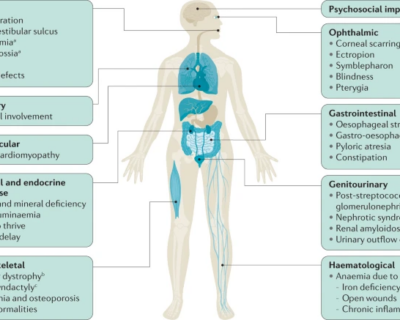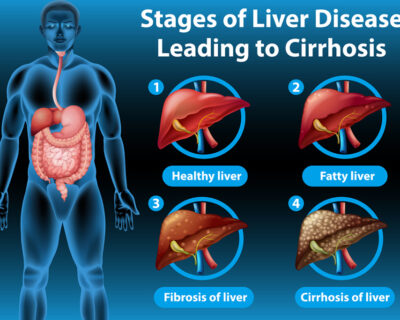
All through COVID-19, why are more people eating plant-based protein?
During the COVID-19 pandemic, new surveys indicate that more people are turning to plant-based protein sources.
- People are increasingly interested in plant-based foods for a variety of reasons
- , including meat shortages in some places, environmental concerns, and a desire to eat a better diet.
- Plant-based meat patties, as well as common foods like tofu, hummus,
- and almonds, are recommended by nutritionists as good sources of daily protein.
At the time of publication, all facts and statistics were based on publiclyavailable information.
It’s possible that some of the material is outdated.
As the COVID-19 pandemic continues, people in the United States and around
the world have had to adjust to a variety of changes in their everyday lives.
Shifting dietary views has been one of the most significant changes.
Changes in the food supply, as well as shortages of items on grocery store shelves
and the closing of local restaurants, have prompted individuals to rethink what they eat and when and where they eat it.
During the outbreak, one trend that appears to be forming is a preference for plant-based meat replacements.
The International Food Information Council (IFIC) Foundation recently released two polls on how we approach food consumption: one on food safety and eating habits in the aftermath of COVID-19, and the other on plant alternatives to meat.
They discovered an increase in interest in consuming plant-based protein.
Why has there been such a rise in interest in plant-based protein?
The first poll, based on 1,000 interviews with U.S. adults conducted between May 7
and May 12, found that since COVID-19 began, nearly half of
Americans had eaten the same quantity of most types of protein.
Since the outbreak, about a quarter of people have stated they’ve eaten more protein
from plants, while roughly 31% indicated they’d never eat plant-based alternatives to meat.
The second study was based on 1,000 adult interviews conducted between March 10 and March 11.
What are some major findings? A burger manufactured from plant components,
according to 4 out of 10 responders, would be healthier than a regular ground beef burger.
When presented with blinded nutrition facts labels, more people believed that the plant-based option would be the healthier option.
More specifically, for those who believed the plant-based alternative would be healthier,
the number of vitamins and minerals stated on the label, as well as the
number of specific vitamins and minerals included on the label, influenced their decision.
When asked what he thinks is behind the current surge in interest in plant-based
meat alternatives, Kris Sollid, RD, IFIC’s senior director of nutrition
communications, replied, “It’s tough to comprehend increased consumption of any specific product during periods like this.”
“Many variables are likely at play,” he told Healthline, “including some sections of
the country suffering shortages of key commodities in grocery shops earlier in the pandemic.”
“In our poll, 40% of consumers said they are paying more attention
to the ability to find things they typically buy, and 38% said they are paying
more attention to the amount of money they have to spend on groceries,” Sollid said.
Amber Pankonin, MS, LMNT, a registered dietitian, feels it’s a combination of meat shortages and individuals trying to better their general health.
Pankonin, who lives in Nebraska, said she hasn’t seen the meat shortages that other regions of the country have, despite some increases in cases at local meatpacking plants. She stated that this may not have been the case in other locations.
people were attempting to utilize quarantine as a method to get healthier and improve their nutrition
“Another possibility is that people were attempting to utilize quarantine as a method to get healthier and improve their nutrition, so I can see why some people would try plant-based alternatives,” Pankonin told Healthline. “I don’t believe plant-based convenience foods are less expensive, although that could vary depending on where you live.”
While Dana Hunnes, PhD, MPH, RD, a senior dietitian at the University of California Los Angeles Medical Center, would like to believe that the rising interest in plant-based protein is due to “open-mindedness,” she believes it is more likely due to “access and availability of animal options.”
“I suppose that, on the plus side, people are at home more, maybe have
been cooking more, and so it is likely that they have become more open-minded to trying out new flavors that are also healthy for them,” Hunnes told Healthline.
The advantages of plant-based meat alternatives in terms of health
The availability of naturally occurring fiber, anti-inflammatory micronutrients,
antioxidants, and lower calorie counts, according to Hunnes, are among the nutritional benefits of these foods.
“It’s absolutely better for you than meat, which has proinflammatory lipids,
carcinogenic acrylamide formed during the cooking process, and a lot of bad fats,” she noted.
Vitamin B-12, which may be easily provided through a vitamin supplement,
nutritional yeast, or fortified foods, is the sole nutrient at danger when consuming plant-based proteins, according to Hunnes.
“Not every plant protein item is nutritionally the same,” Sollid wanted to emphasize.
This is why it’s critical to read and compare nutrition labels on any product
you’re thinking about buying for yourself or your family.
When comparing a burger produced from plant materials to one made entirely
of ground beef, he says there are changes ounce for ounce.
Sollid explained, “One is not always healthier than the other.” “If you’re an omnivore,
it doesn’t have to be an either-or issue when it comes to protein choices between plants and animals. Both can be part of a balanced diet.”
According to him, a normal “plant burger” has slightly more calories than a beef counterpart. This could be due to the presence of more carbohydrates, fiber, or fat.
Some brands may include higher levels of total and saturated fat than beef varieties.
He went on to say that fat is an important part of a well-balanced diet, and that the types of fat we ingest are more important than the total amount we consume.
“Saturated fat from plant sources isn’t regarded to have the same health benefits as saturated fat from animal products, but both plant and beef burgers can be part of a healthy diet,” he added.
Plant burgers do not include cholesterol, according to Sollid, but dietary cholesterol does not play a significant influence on blood cholesterol. This suggests that the cholesterol we obtain from meals isn’t the main cause of the cholesterol issues that doctors are concerned about.
“Nutrition scientists have been hinting at this for a long time, but the typical consumer may not be aware of it,” he explained. “Many factors, such as physical activity, body weight, saturated and trans fat intake, heredity, age, and sex, have a greater impact on blood cholesterol than dietary cholesterol.”
He also stated that plant items have increased salt levels in order to enhance flavor. When reading labels, remember that the standard recommendation for salt intake is less than 2,300 milligrams (mg) per day.
Fiber is a nutrient found in plants that aren’t found in animal goods. Many plant burgers have a few grams of fiber, but ground beef burgers have none. He went on to say that the recommended fiber intake is 14 grams per 1,000 calories consumed.
Both plant and meat burgers have about the same amount of protein, but it comes from different sources, according to Sollid.
Will this trend continue following COVID-19?
Pankonin and Hunnes work with people from various backgrounds. During COVID-19, Pankonin has noticed a spike in queries from the people she works with about meat safety, how to get the most out of their meat purchases, and where to even begin with plant-based alternatives.
“I think many people are afraid of plant-based products because they don’t know how to cook or prepare them, so I’ve done a lot of preparation coaching,” she said.
Hunnes, who works in a hospital, hasn’t noticed a shift in attitude because their meals are delivered directly from UCLA. She said they do have a lot of plant-based options, and she’s noticed that people are more receptive to trying new foods right now, partly because of the meat shortages.
“It’s difficult to say which came first, the chicken or the egg — meat shortages or a desire to eat more plant-based,” Hunnes remarked.
Will this willingness to consider plant-based protein continue? Pankonin is of the opinion that this is the case.
“Even before COVID-19, I noticed people experimenting with plant-based alternatives due to environmental or sustainability concerns. And now, as a result of COVID-19 and the news about packing facilities and employee treatment, I believe consumers will look for other options, or at the very least try buying meat from local farms or examine direct farm-to-consumer models,” she said.
Hunnes expressed her optimism that the trend will continue. She stated that we require it to continue in order to address the world’s present environmental and health challenges.
“But, unfortunately, I have a sense that if the food supply returns to normal, eating patterns will return to normal as well, and meat consumption will return as well,” she said.
“My greatest hope is that people who are trying plant-based for the first time out of need would find it to be really delightful and healthy and that they will want to stay that way,” she said.
Sollid observed that every now and then, a new food trend catches everyone’s interest only to “fade after the novelty wears off,” according to his perspective.
“At other periods, food fads have lasted a lot longer. “I don’t have a crystal ball, but I have a feeling that this newer generation of plant alternatives to animal meat will be there for a long time, especially when you consider perceptions that they are healthier for people and the environment,” he said.
He continued, “However, only time will tell how to research and perspectives on these goods evolve.”
While food fads come and go, experts predict that shifting perceptions about food safety and sustainability will keep people interested in plant-based foods.






